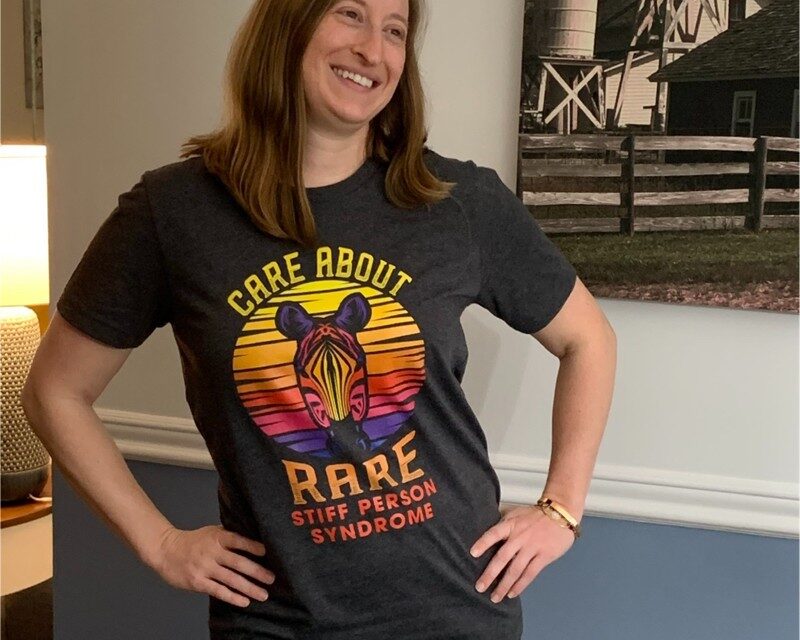By Lauren McDermott
Best-selling recording artist Celine Dion recently revealed that she has Stiff Person Syndrome (SPS), an extremely rare disease affecting about one or two in one million people worldwide. I was diagnosed with SPS at the age of 38, and it turned my entire world upside down. The exact cause is unknown and there is no cure. The Genetic and Rare Disease Information Center of the National Institutes of Health (GARD), says SPS is a progressive syndrome that affects the nervous system, causing muscle stiffness, rigidity, and painful spasms in the trunk and limbs, severely impairing mobility. SPS spasms are powerful enough to fracture bones and dislocate joints.
Like most SPS patients, I am sensitive to noise, sudden movements, and emotional distress, which can set off muscle spasms. SPS affects twice as many women as men, and is caused by increased muscle activity due to decreased inhibition of the central nervous system. It is also thought to have an autoimmune component, associated with diabetes and other autoimmune diseases. SPS is diagnosed through blood tests, such as for glutamic acid decarboxylase (GAD) antibodies which are elevated in about two in three people with the syndrome, a lumbar puncture, and electromyography (EMG).
I recently experienced a throat spasm that lasted for hours. I couldn’t speak clearly or swallow properly, and felt like someone was fiercely gripping my neck. My teeth were involuntarily clenched, and the muscles from my jaw to my chest felt like they were ripping apart, as my body twitched and burned with pain and numbing sensations. The spasm left me confused, fatigued, foggy, and anxious.
Prior to SPS, I was active, enjoyed a challenging career, loved traveling, exercising, and hiking. I try to maintain an active lifestyle, but with SPS, too much activity can result in spasms and extreme fatigue. My health regimen consists of oral medications, IVIg treatments, medical marijuana, physical therapy, mindfulness, heating pads, hot tubs/saunas, Epsom salt sensory deprivation floats, proper sleep, low stress environments and relationships, proper hydration, a healthy diet, support groups, and therapy.
While life-altering and disabling, SPS has made me more compassionate and appreciative of life’s simple moments I previously took for granted. I never imagined having to retrain myself to walk, being fearful of leaving the house, and constantly asking for assistance in everyday tasks. It has highlighted the fact that we live in a society that is often inaccessible to individuals with physical or mental challenges. Fortunately, I have forged life-saving connections with other SPS warriors and disability advocates as I spread awareness, raise funds for research, and advocate for myself. I hope that The Stiff Person Syndrome Research Foundation’s medical advisory board will discover better treatment options and possibly a cure with the help of their fierce CEO, Tara Zier, at the helm. My heart goes out to Celine Dion and others who have been diagnosed with rare diseases. February 28 is National Rare Disease Awareness Day. Learn more about SPS and other rare diseases at https://stiffperson.org and https://rarediseases.org.












